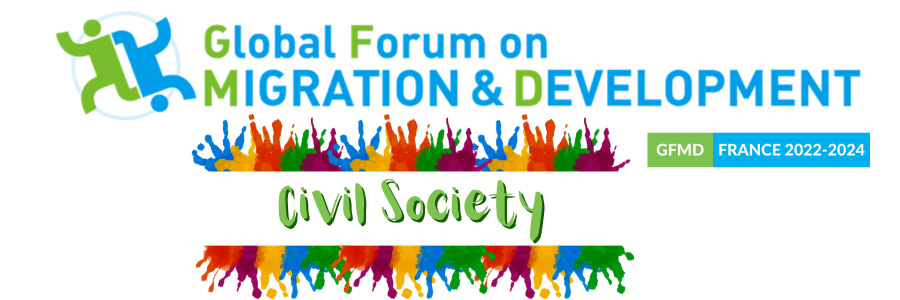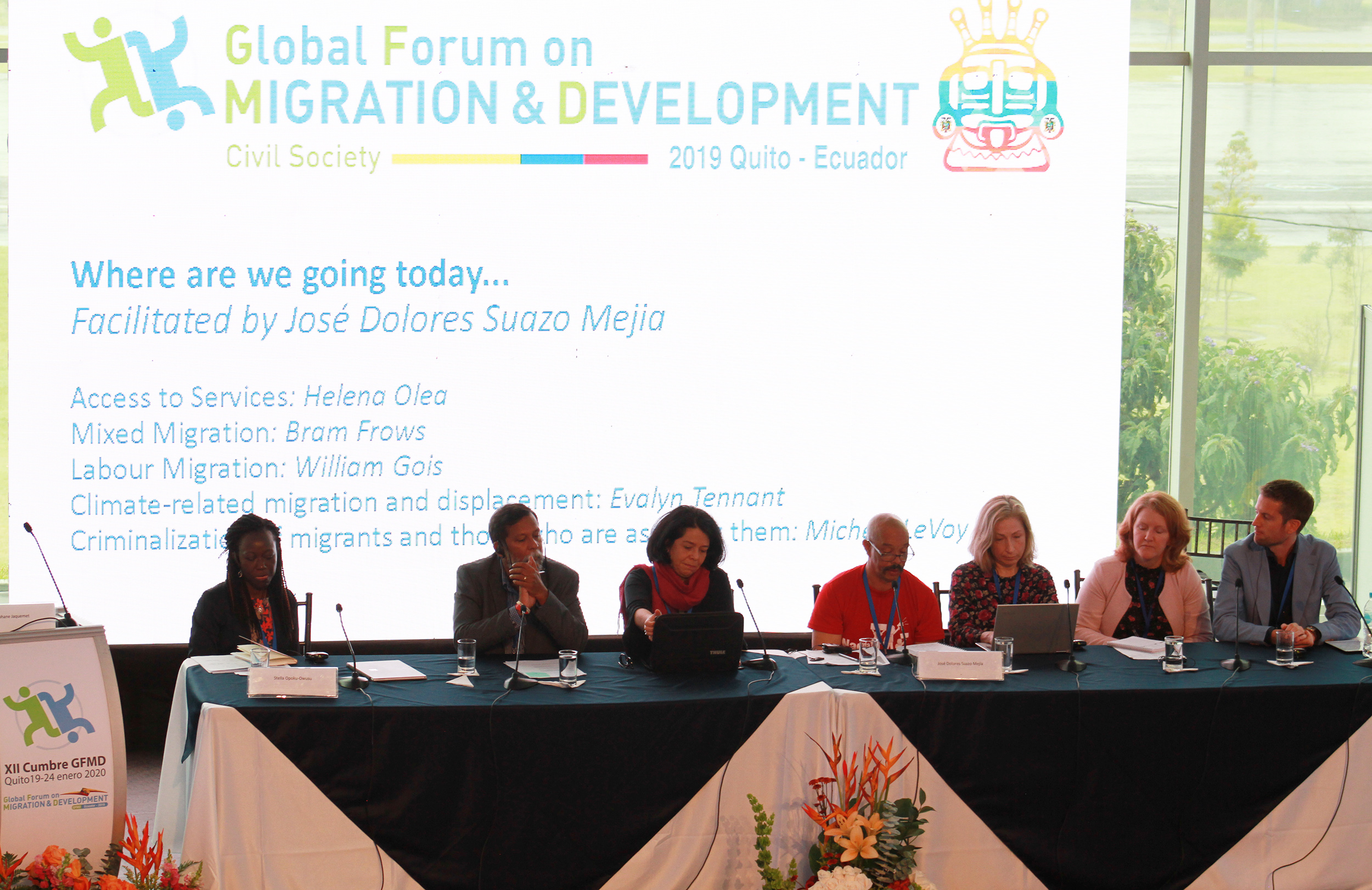“Many times, civil society is present at the table but not really a true participant. Today, we own the space and need to make the most out of it.” With these words, civil society Co-Chair Stella Opoku-Owusu opened the Civil Society Day (CSD) at the Global Forum on Migration and Development (GFMD) Summit in Quito.
“Today, we are here to be constructive, not destructive. I have great expectations and a strong hope that after our discussions, we will all feel that we have contributed our small grain of sand towards advancing the rights of the people we serve,” added civil society Co-Chair José Dolores Suazo Mejía, Don Lolo.
Some 300 civil society representatives and observers were greeted this morning by Ambassador Santiago Chávez Pareja, the Ecuadorian Chair of the GFMD.
Mr. Chávez stated his trust in civil society organizations, and his desire to see a stronger Ecuadorian and Latin American civil society sector. “The role of civil society must be well understood, and communication is key in this regard. We need to cherish and preserve the existing spaces for discussion and conversation.”
The implementation of existing international commitments – the last of which is the Global Compact for Migration (GCM) – and innovative partnerships to improve the reality of migrants’ lives on the ground are the two key focuses of today’s meeting.
Marta Verani, representative of the United Nations Major Group for Children and Youth, brought the perspective of youth to the CSD. “Two years ago, when we started working on migration, we soon realized there was no space for us to engage in the mechanisms, nor in the GFMD, nor in the GCM,” she said. “So, we created it. And this year, in the second Youth Forum, we had high-quality discussions with 68 youth leaders from all over the world.”
The perspective of the People’s Global Action (PGA) was presented by Roula Hamati, from the Cross-Regional Center for Refugees and Migrants in Lebanon. “Our goal this year was to take a step back from everything happening at the global level, and to focus on learning,” Hamati explained, “what we can learn from each other, from our practices, from our experiences, from our struggles on the ground.”
Hamati said that “many times, the grassroots bottom-up approach is not fed appropriately into the global discussions. However, change is never a top-down approach. It always comes from the ground.”
Discussing 5 key issues on migration and development
Participants spent the late morning and afternoon working in five thematic groups, which discussed in detail the main themes of this year’s CSD.
Access to services, led by Helena Olea from Alianza Americas, represents the second line of migration policies and is often not discussed when the focus is on entry and access to a territory. However, many migrants, especially those with irregular status, face daily struggles when considering how and if to access the most basic public services.
Simple barriers like having to show an identity document can make a migrant think twice about reporting a crime or seeing a doctor. The importance of firewalls cannot be understated: when local authorities put in space ‘safety’ mechanisms that make access to social and economic rights independent from migratory status, migrants feel much more protected.
Bram Frouws from the Mixed Migration Centre in Geneva addressed the topic of mixed migration flows. “People have different motivations to move, they speak different languages, trust different sources. Mixed migration movements are extremely complex phenomena, often taking place in very dangerous environments,” he said.
And more importantly, Frouws explained, despite the many international commitments to improve life for migrants, the situation on the ground hasn’t improved – in fact, in many cases, it has worsened. “We have a colossal task ahead of us as civil society organizations,” he concluded, “and that is, to turn this trend around.”
Labor migration is a topic that has long been at the core of the concerns brought to the GFMD by civil society organizations. William Bois, from Migrant Forum Asia, focused on how the ILO conventions on Domestic Workers and on Exploitation in the Workplace are being implemented on the ground.
Evalyn Tennant talked about climate change-related displacement. She focused on how the increasing volatility linked to climate events is already a reality for many people in the global South. Though it may not always lead to immediate displacement, climate events can certainly be a factor affecting migration decisions. Tennant highlighted the need for legal and policy frameworks that properly address displacement related to climate change.
The criminalization of migrants and those in solidarity with them results from a security-oriented view on migration, something that States have been doing for decades, said Michele LeVoy, from the Platform for International Cooperation on Undocumented Migrants. This leads to detention, violence at the borders, “voluntary” returns – where return is a softer word for deportation – to the criminalization of solidarity.
Stay tuned for updates on the deliberations from the GFMD Civil Society Days!

